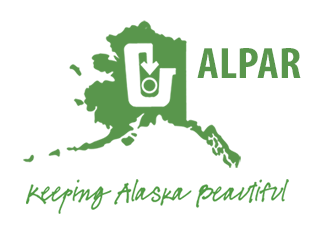As Anchorage prepares for the September 15 ban of certain bags within the Municipality of Anchorage, it is sure to catch some off guard, while others will be ready for the switch. Here is a primer on the ordinance and frequently asked questions.
We reached out to a couple of the larger chains in Anchorage to hear how they are managing the change. Carrs/Safeway stores in the MOA will continue to collect plastic bags as long as customers want to drop them off. The bins are generally located in the front lobbies of their stores. Carrs/Safeway in Anchorage will continue to keep the collection bins in place until they are no longer being used. Bags will ultimately be shipped to their recycling center in Auburn, Washington. Walmart will be moving their bags to stores where plastic bags are permitted. During the transition, Walmart in Anchorage will give out a limited amount of re-usable bags to customers.
As a statewide organization, we have watched individual communities grapple with what to do with waste. It seems there is no easy answer at the intersection of materials recovery and plastics management, including plastic bags.
Compounding the issue, difficulty in finding end markets for plastic bags has caused the recycling center in Anchorage to forego collection – effective September 15th. It has become increasingly difficult to find mill buyers for this grade since China stopped accepting it, and the recycling center in Anchorage can no longer find reliable outlets.
Anchorage is not alone in this situation. At a national recycling conference last month, plastics were a hot topic as were all perspectives – from chemical recycling companies, to waste haulers and material recovery facilities, to groups focused on plastic reduction and design. It was noted that while automation and robotics have eased some sorting issues in the Lower 48, it is the reality of more humans consuming more products that creates pressure points, and perhaps change on a global scale.
We will continue to provide updates to the public as they become available. Ultimately, it is up to individuals to commit to reduce, re-use, recycle. And with the additional support of businesses, we can continue to build the capacity and confidence in the recycling sector.
-By Anita Nelson/ALPAR

 Follow
Follow